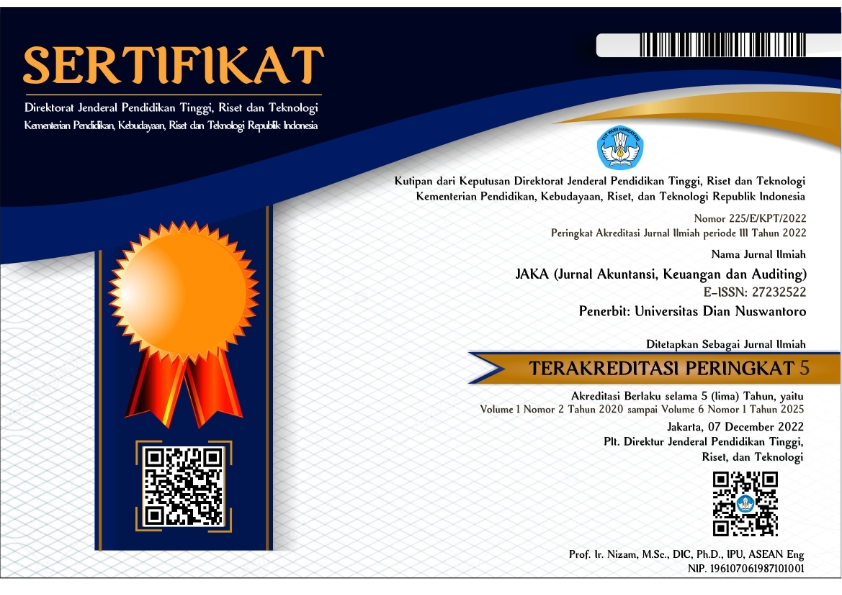Pemikiran Abu Yusuf tentang Pajak dan Relevansinya di Zaman Sekarang
DOI:
https://doi.org/10.56696/jaka.v3i2.8847Abstract
Taxes are the largest source of state revenue. Government development and operational budgets have a large dependence on taxes. Tax implementation has existed since Prophet Muhammad SAW, tax implementation continues. During the Abbasid dynasty, there was a scholar named Abu Yusuf who wrote about taxation at the request of Amir Al-Mu'minin, Abu Yusuf was asked to prepare a comprehensive book that could be used as evidence of legal tax collection, which was compiled to avoid people's pressure. Abu Yusuf tends to expose diverse economic thought by using qiyas analysis and begins with an in-depth study of the Qur'an, the hadith of the prophet, atsar sahabi, and also the practices of the rulers. The basic idea is to realize al-maslahah al-ammah (public interest). This approach produces diverse, more relevant and consistent ideas. In the case of taxes, he has developed clear principles that in the coming centuries may be known to economists as rules of taxation.References
Adiwarman Azwar Karim, 2008 Sejarah Pemikiran Islam, Jakarta : PT. Raja Grafindo Persada
Ahmad Muti, 2007 Keuangan Publik Islam menurut kitab Al kharaj abu yussuf relevansinya dengan APBN, jakarta : UI.
Badri Yatim, M.A. 1998. Sejarah Peradaban Islam. Jakarta: PT. Grafindo Persada Casavera, 2009 . Perpajakan Yogyakarta : Graha Ilmu.
Boedi Abdullah, Peradaban Pemikiran Ekonomi Islam (Bandung: Pustaka Setia, 2010),.
Bohari, Pengantar Hukum Pajak, Jakarta: PT. Raja Grafindo Persada, 2004 Casavera, Perpajakan (Yogyakarta: Graha Ilmu, 2009)
Irfan Mahmud Ra?ana, Sistem Ekonomi Pemerintahan Umar Ibn Khattab, Yogyakarta:Pustaka Firdaus, cet. 1, 1990,
M. Abdul Mannan, Teori &Praktek Ekonomi Islam, Jakarta: PT. Dana Bhakti Wakaf, 1993,
Devano, Sony. Siti Kurnia Rahayu. Perpajakan Konsep, Teori dan Isu. Jakarta:Kencana, 2006.
Fahmi, Gus. Pajak Menurut Syariah. Jakarta: Raja Grafindo Persada, 2007.
Hoetoro, Arif. Ekonomi Islam, Pengantar Analisis Kesejarahan dan Metodologi. Malang: Badan Penerbit Fakultas Ekonomi Universitas Brawijaya, 2007.
Huda, Nurul. Ahmad Muti. Keuangan Publik Islami, Pendekatan Al-Kharaj (Imam AbuYusuf). Bogor: Ghalia Indonesia, 2011.
Karim, Adiwarman Azwar. Sejarah Pemikiran Ekonomi Islam. Jakarta:PT.RadjaGrafindo Persada, 2004.
Downloads
Published
How to Cite
Issue
Section
License
Copyright (c) 2023 JAKA (Jurnal Akuntansi, Keuangan, dan Auditing)

This work is licensed under a Creative Commons Attribution-ShareAlike 4.0 International License.












